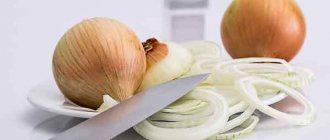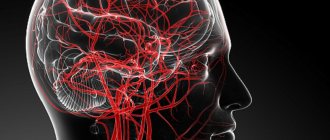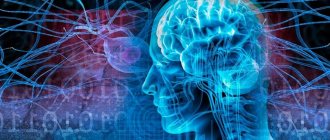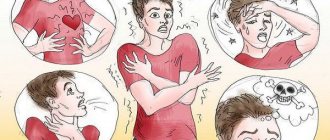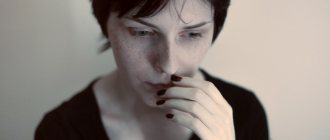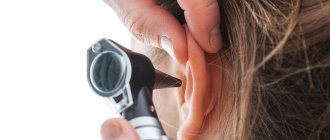Organs responsible for maintaining balance
A person feels how his body is located in space for a reason. For this purpose there is a special organ of balance. It is located in the auditory cochlea. Scientifically it is called the vestibular apparatus. It's structured is complicated. The main parts are the vestibule and three semicircular canals.
In the vestibules there are special cells. They have a long hair-like process. It is immersed in dense endolymph. It moves from changes in the position of the head and torso. This movement causes the hair of the receptor cells of the vestibular apparatus to vibrate. This vibration is recorded and transmitted along nerve fibers to various parts of the central nervous system.
Herbal infusions
Herbal infusions are highly effective for vertigo. They allow you to completely get rid of it or significantly alleviate a person’s condition.
Melissa is most often used in recipes. To prepare the decoction, you will need to pour a tablespoon of dry leaves into a glass of boiling water and cool. It can then be taken as tea.
Oregano is no less useful for dizziness. You need to brew 2 tablespoons of the dry mixture in a thermos, leaving for 12 hours. After this, the healing decoction should be drunk a day, dividing it into four equal portions. The duration of treatment is no more than 3 weeks.
For mild ailments, the following infusion is also very useful. To prepare it, you will need to mix 100 g of mint leaves, linden flowers and peony root. Then add a tablespoon of the resulting raw material to a glass of boiling water and let it brew. Traditional healers recommend taking the decoction throughout the next day. The indicated amount of raw materials is designed for a full course of therapy.
Causes of dizziness
Before treating a problem, you must first know its source. There are many factors that can cause dizziness. The causes and treatment of this problem with folk remedies are very relevant, since it is very common.
The etiology of dizziness may be as follows:
- stressful conditions;
- poor nutrition;
- smoking;
- taking medications;
- neurological pathology;
- infectious diseases;
- osteochondrosis of the cervical spine;
- arterial hypertension.
Causes
Several anatomical integral systems of the human body are immediately responsible for the stable state of the body:
- The vestibular apparatus is located inside the skull and is responsible for the sensory organs that respond to the movement of the body in the space surrounding it.
- Visual system: the eyes make it possible to obtain basic information about the position of the human body in relation to various objects.
- Sensitive peripheral gentle receptors located in joints, muscles, and bone tissue supply the brain with the necessary data during movement.
Based on the classification presented above, the following causes of dizziness can be identified:
- brain diseases (hemorrhages, injuries, tumors);
- failure of the system responsible for orientation in space (visual, vestibular, muscular);
- damage to the inner ear;
- damage to the vestibular nerve;
- cervical osteochondrosis;
- taking antibiotics and other medications;
- stress and overwork;
- lack of glucose caused by fasting or low-carb diets;
- discrepancy between sensations and visual images;
- pathology of the eye muscles, etc.
To achieve the best results, it is necessary to determine the cause of dizziness before starting treatment. They are the ones who should be fought.
Often the syndrome is disturbing against the background of anemia, in which there is a lack of iron in the blood. In such a situation, you can take a course of drugs to increase the concentration of this trace element.
Otitis media can cause dizziness. To combat the disease, the doctor prescribes a course of antimicrobial drugs, having previously identified which pathological microflora provoked the disease.
In some cases, the most effective approach is gymnastic procedures as a treatment for dizziness. Cervical osteochondrosis, for example, is precisely the cause of dizziness, which can be eliminated with special exercises.
If you feel dizzy very often, it may be due to improper functioning:
- vascular system of the brain;
- vestibular apparatus;
- hearts.
Although other diseases may also be the cause. In any of the options, the cause and treatment of dizziness and noise in the head are closely related. Only by identifying the prerequisites can you choose an effective course for eliminating the unpleasant phenomenon.
Folk remedies are effective if you choose them correctly. It would be a good idea to first consult a doctor - alternative medicine can also be dangerous. Of particular benefit will be those recipes that not only eliminate dizziness, but also normalize vascular tone, cleanse the circulatory system of deposits, and have a positive effect on brain function.
Sometimes dizziness indicates a change in blood quality: the fluid becomes more viscous than normal, or vice versa. Vertebrobasilar changes in brain structures may play a role.
However, it is impossible to list all possible reasons - there are too many of them. To choose the optimal method for eliminating the problem, it is reasonable to establish what exactly played a role in a particular case, and based on this, begin a course of medications.
At the appointment, the doctor will check the patient using methods such as:
- visual inspection;
- collection of medical history;
- collection of complaints;
- functional tests to identify the characteristics of the vestibular apparatus;
- examination of the hearing organs, throat, nose;
- CT, MRI;
- dopplerography;
- X-ray of the skull;
- checking the biochemical composition of blood;
- electroencephalography.
Dizziness when stressed
We live in a world where constant stress has become the norm. The noise of the metropolis, dissatisfaction with the service of ordinary people in shops and organizations, large emissions of carbon dioxide into the atmosphere - this is just a small fraction of what a city dweller experiences every day.
And along with this, stress can lead to serious disruptions in the functioning of the vestibular apparatus. This occurs because the constant release of adrenaline constricts the blood vessels. Thus, blood supply to all organs and tissues is affected.
Along with poor blood supply, oxygen saturation of tissues is always impaired. While most organs are more or less adapted to this, brain cells are very sensitive to hypoxia. Due to lack of oxygen, they quickly die and thereby cease to perform their most important function - regulation of life.
This leads to the fact that signals from the vestibular apparatus begin to enter the brain slower or are processed incorrectly. As a result, the person will feel dizzy.
Treatment of dizziness
Natural juices are a proven remedy for treating dizziness.
Carrot juice is simply irreplaceable for this disorder, as well as in case of loss of strength. It is recommended to drink it often, but in small portions. The maximum dose per day is three glasses. Pomegranate juice is also used for the same purpose. However, it must first be diluted with water. You can combine several types of juices. For example, carrot, pomegranate and beetroot. In this case, it is necessary to maintain a ratio of 3:2:2. It is better to take 100 g of the finished medicine before meals.
For vascular diseases, which often cause dizziness, you can drink zucchini juice. For its preparation, preference should be given to young and fresh vegetables. In case of disturbances in the functioning of the central nervous system, traditional healers recommend drinking juice from lettuce leaves. The standard portion is 100 g per day, but it can be divided into several doses.
Dizziness and poor diet
Trophics, or, simply put, cell nutrition, is a key factor in the existence of any living organism. The body needs useful substances to build new cells, for energy, and for the proper regulation of these processes.
These substances include not only well-known proteins, fats and carbohydrates, but also minerals and vitamins. The latter are part of many enzymes that perform complex work and cannot be avoided.
If a person’s diet is not balanced and does not contain a sufficient amount of essential macro- and microelements, then sooner or later this will lead to irreversible damage to various cells. If this happens in the vestibular apparatus or in the sensory areas of the cerebral cortex, which are responsible for the functioning of the balance organ, then the person will begin to experience dizziness and hearing loss.
First aid for severe dizziness in an elderly person
Here's what to do if there are complaints of weakness and dizziness in older people:
- put the person horizontally as soon as possible;
- ensure air flow into the room;
- eliminate possible sources of noise: loud music, radio, TV;
- remove too bright light (but there should be enough lighting).
If the person is dizzy but not vomiting, give the person water or tea with sugar. You can wipe your face with a damp cloth (not too cold). Atropine (0.1% solution, 8–10 drops) helps well. If the patient's condition does not improve within an hour, call an ambulance.
Often, older people immediately experience dizziness and nausea, and black spots appear before the eyes. At the same time, the person turns pale, body temperature drops. Such symptoms can be heralds of a hypertensive crisis, and if you do not quickly call an ambulance, it will lead to myocardial infarction.
It is also worth paying attention if a person experiences speech impairment, numbness in half of the face, headaches, or fainting. All these are signs of a cerebral stroke, and if doctors are not called urgently, the life of the pensioner will be threatened.
We recommend
“Interests of older people: how to improve the life of a pensioner” Read more
Tobacco smoking as a cause of dizziness
There is no point in saying that smoking is harmful. This is a scientifically proven fact. But the fact that smoking leads to dizziness may seem implausible to some. At the moment of inhaling tobacco smoke, a feeling of slight dizziness occurs, but it is not associated with a disruption of the vestibular apparatus, but with the fact that the brain simply does not have enough oxygen at that moment.
This only happens to novice smokers, and everyone knows this very well. Later, the body gets used to it, and the person no longer experiences dizziness while smoking.
These judgments are erroneous. Brain damage due to temporary hypoxia caused by tobacco smoke during smoking does not go away. Over time, brain cells begin to die, and, as in the case of stress, the regulation of the vestibular apparatus ceases to be carried out. The longer the smoking experience, the more cells will be damaged, the more pronounced the manifestations of improper functioning of the balance organ will become.
The best drugs for dizziness with disorders of the vestibular apparatus
Violation of the vestibular apparatus also requires taking pills for nausea and dizziness. Their main task is to influence special histamine receptors that are located in the vessels of the inner ear. It can be taken once in case of long trips in transport, or as a course for maximum therapeutic effect. The top rating of 2021 presented 2 drugs in this category.
Dramamine
The active substance in the composition is dimenhydrinate, which inhibits the increased activity of the vestibular apparatus analyzer. As a result, taking the tablet suppresses nausea, the urge to vomit with all the ensuing consequences, and gives a moderate antiallergic effect
Most often, Dramamine is used to prevent motion sickness on airplanes, vehicles, and ships; for this, it is important to take the tablet an hour before travel. Doctors prescribe tablets for a course of treatment for Minière's syndrome, epilepsy, and other vestibular pathologies
Age limit: from 1 year of age; use in the first trimester of pregnancy is not recommended.
Advantages
- Performance;
- Prevention of motion sickness;
- One-time, course admission;
- Over-the-counter sale;
- Minimum restrictions;
- Children allowed;
- Inexpensive.
Flaws
- Possible side effects;
- Causes drowsiness.
The tablets not only calm the vestibular apparatus, but relieve muscle tone in all internal organs and prevent motion sickness in any type of transport. The advantages include quick help within 15 minutes, minimal restrictions, and price. The weaknesses of this treatment are drowsiness and the presence of side effects.
Relanium
A modern second-generation anxiolytic drug belonging to the group of tranquilizers. Most often prescribed by doctors for muscle spasms, nervous strains, anxiety disorders, as well as in various cases of damage to the cervical spine. The active component in the composition is diazepam, which enhances the effect of the inhibitory neurotransmitter, on which the transmission of nerve impulses directly depends. Widely used in medicine as a muscle relaxant, hypnotic, and sedative. There are no age restrictions; Relanium is prohibited for use during pregnancy and lactation. Available in the form of an injection solution.
Advantages
- Removing mental and nervous excitement;
- High efficiency;
- Emergency help;
- Sedative, hypnotic effect;
- Children allowed;
- Relieving cramps;
- Inexpensive.
Flaws
- May be addictive;
- Sale by prescription.
In medical practice, Relanium is used in emergency cases when it is necessary to quickly relieve attacks of nervous and mental agitation. Course treatment is also practiced, but strictly under the supervision of a doctor.
Dizziness due to medication
Side effects of medications often include dizziness. Sometimes this is temporary, for example, when the patient is initially given a large dose of medication to create a satiating effect. When the desired therapeutic effect is achieved, the dose is reduced and the dizziness disappears. But it happens that such a side effect is present throughout the entire duration of taking the medicine, even in the optimal dosage. This will already constitute intolerance to the drug.
There are many drugs that can cause dizziness. Typically these are drugs from the following groups:
- vasoconstrictors;
- nootropics;
- antihistamines;
- tranquilizers;
- sedatives.
It should be noted that not all people are susceptible to dizziness due to taking such drugs. One patient may tolerate a drug well, but another will develop side effects from the same drug. Everything is very individual, which is why pharmaceutical companies are developing new medications so that the doctor has the opportunity to replace the patient’s vital drug with another drug that he will tolerate well.
How to help an older person if he has dizziness
To prevent a person from falling during dizziness, you need to do the following:
- Help him walk to the bed and lay him on his back.
- If the older person's limbs are cold, warm them with slow warming movements.
- Apply a cold water compress to your forehead.
- Provide air access by opening the window.
- Give a mug of warm sweet tea to drink.
- If an older person is taking medication for vertigo, they should take it.
In some cases, inhaling ammonia vapor will help relieve dizziness.
Migraine as a cause of dizziness
Headaches, or migraines as they are called, may also be accompanied by dizziness. Most often, the cause of such conditions is a violation of the blood supply to the brain. There are many diseases that are accompanied by such disorders:
- residual encephalopathy;
- epilepsy;
- vertebrobasilar artery syndrome;
- cervical osteochondrosis.
In general, the mechanism of dizziness is the same as during stress. Poor filling of the brain vessels with blood leads to ischemia of nerve cells and, ultimately, to their death. This causes headaches and dizziness.
Infectious diseases as a cause of dizziness
Infectious agents are capable of infecting various organs and systems. The nervous system in general and the brain in particular are no exception. Meningococcus can cross the blood-brain barrier and cause a serious disease called meningitis. At its very beginning, it can manifest itself as dizziness and headache.
Inflammatory lesions of the middle ear, which are also caused by bacterial agents, can also be accompanied by dizziness. The mechanism of this phenomenon in this case is indirect. As mentioned above, the vestibular apparatus is located in the auditory cochlea.
This organ is located in close proximity to the middle ear. If the pathological process spreads and affects the auditory cochlea, the balance will be disrupted. This will eventually lead to dizziness.
Methods and recipes for noise in the head
A mixture of ammonia and water works well for dizziness and tinnitus. Add a quarter spoon of ammonia to a glass of water, soak a piece of gauze in the liquid and place it on your forehead. It is advisable to do this compress throughout the week in the morning.
Nettle decoction is good for weakness, stimulates blood flow in the heart muscle, improves nerve conduction and calms the nervous system.
- Brew a handful of dry nettle leaves with boiling water, leave to brew for 2-3 hours in a dark place under a lid.
- Strain and drink 50 ml before breakfast, lunch and dinner.
To improve the taste, you can add apple juice (the same amount) to the broth. After a couple of weeks of treatment, the discomfort will completely disappear.
Remember that individual components (garlic, honey) can provoke an allergic reaction. If 14 days have passed since the start of treatment and there is no result, try another remedy.
Dizziness with osteochondrosis
Degenerative changes in the interarticular discs of the cervical spine can also lead to dizziness. In a patient suffering from cervical osteochondrosis, blood flow in the vertebral arteries is disrupted.
Despite the fact that the main flow of oxygen and nutrients to the brain is carried out by the carotid arteries, the vertebral arteries also play an important role. If their function is insufficient, then the functioning of the balance organ will also be disrupted.
Often, cervical osteochondrosis leads to pinching of the spinal nerves. This is accompanied by pain. It may also cause dizziness. In this case, the mechanism of occurrence is reflex.
All nerve plexuses are in close interaction with each other. Likewise, the spinal nerves of the cervical region signal the movement of the head, and this is directly related to the organ of balance. Pathological pain impulses can cause disturbances in it.
Why does dizziness occur?
Dizziness is usually understood as a disorder in which a person is haunted by the feeling of objects spinning around him. He himself loses stability and balance. He has a feeling of unsteadiness, as if after a long ride on amusement rides. This is a very subjective perception.
The most common causes of dizziness include:
- traumatic injuries in the head area;
- age-related disorders;
- atherosclerosis;
- increased blood pressure;
- neoplasms, including malignant ones;
- migraine;
- vascular pathologies.
Sometimes dizziness occurs even in completely healthy people. If the disorders listed above are absent, malaise may occur due to stress, prolonged depression, or a sudden change in body position.
When dizzy, a person usually experiences weakness and a feeling of lightheadedness. Some people experience nausea. This condition is also characterized by the following symptoms: pale skin, a feeling of “floaters” in front of the eyes, increased sweating. Patients constantly complain of a persistent feeling of body rotation relative to surrounding objects, tilting or even falling.
You can stop dizziness only if you know the cause of its occurrence. To do this, you must first contact a therapist and undergo an examination. Based on its results, the doctor may recommend consultation with specialists or immediately prescribe treatment. Today, more and more often, the traditional method of therapy (the use of tablets, injections) is supplemented with traditional methods.
What to do if you often feel dizzy?
The appearance of any symptom in yourself, against the background of complete well-being, cannot be ignored. And if you feel dizzy, even more so. In addition to the causes of dizziness listed above, there are also more serious conditions that can cause such a clinical picture. These include:
- ischemic and hemorrhagic stroke;
- a brain tumor;
- various types of shock;
- respiratory failure;
- heart failure.
If you start to feel dizzy, and even without any reason, you should definitely consult a doctor. In general, a neurologist deals with such problems, but for starters, you can simply contact a therapist. He will assess the likelihood of certain causes of dizziness and draw up an examination plan.
The need for diagnostics
Diagnosis is based on determining the cause of what causes dizziness at normal blood pressure. This requires a history and a simple neuro-otological examination. Often these measures are sufficient to distinguish the origin of vertigo (in the peripheral or central vestibular apparatus).
Dysfunction of the vestibular system is manifested by a combination of the following symptoms taken into account in the diagnosis:
- perceptual (dizziness);
- ocular (nystagmus, lack of equilibrium reflex);
- postural (ataxia - imbalance);
- vegetative (nausea, vomiting).
Dizziness caused by imbalances as a result of a disorder of the inner ear system is not fatal, although it is very unpleasant and irritating. Its common cause is a blockage of the cervical spine, which can be eliminated with the help of medications, massage, and physiotherapy.
Balance disorders with a neurological cause may indicate a serious illness. If the problem is caused by a stroke, only the consequences are eliminated. In the case of an operable brain tumor, neurosurgical intervention is prescribed.
Sometimes, based on the time factor (duration of the symptom), it is possible to predict a nosological unit.
| Duration | Nosological unit |
| Seconds | Brief dizziness |
| minutes | Short-term deficiency of blood supply to the equilibrium apparatus of the brain |
| Watch | Meniere's disease, basilar migraine |
| Days | Inflammation of the equilibrium nerve, damage to the labyrinth (head injury), fracture of the temporal bone |
| weeks | Disturbance of the brain's equilibrium center, multiple sclerosis |
A basic examination includes a general and biochemical blood test, electrocardiographic examination, computed tomography and/or x-ray examination of the cervical spine, and magnetic resonance imaging of the brain. Depending on the detected violations, additional studies may be prescribed.
Dizziness can be either the primary, sole, or secondary symptom.
It is impossible to judge the seriousness (or non-seriousness) of a condition by this criterion alone. If a person experiences vertigo for several days in a row, this is a sure sign that he should see a doctor without delay, even if there are no other symptoms.
To identify the causes of dizziness, the patient should consult a neurologist. The doctor will do a Dix-Hallpike test, a test for the integrity of the vestibulo-ocular reflex and other instrumental studies (if necessary) - posturography, a rotating chair.
In addition, tests are prescribed:
- Complete blood count, glucose level, biochemistry.
- Electrocardiogram.
- X-ray or CT scan of the cervical spine.
- Vascular examination.
- MRI of the brain (if there is a suspicion of tumor processes).
The specialist will also ask a number of clarifying questions to clarify the provoking component.
It is also important what stops an attack of dizziness (food, fresh air or a sip of water)
Pregnancy and dizziness
Such a special condition of women as pregnancy is also often accompanied by dizziness. This is due to the restructuring of the body, aimed at the need to supply nutrients to the fetus. If this restructuring takes place quickly and intensively or somehow incorrectly, then the expectant mother’s body as a whole, including the brain, will experience a lack of oxygen and nutrients.
This will ultimately lead to the fact that a woman in this position will feel dizzy. However, most often such phenomena are only temporary and pass quickly.
Diagnosis of dizziness in older people
The success of treating dizziness in older people depends on correct diagnosis. Often the cause of dizziness is changes in the functioning of the brain. In this case, it is necessary to conduct appropriate research. Surveys of this kind are carried out according to the following scheme:
- Determine what type of dizziness is.
- Find the reasons for its appearance.
- The presence of neurological or ENT symptoms is determined.
- Additional methods are used to study the patient’s condition, depending on what pathologies were identified during the examination and interview.
1. History taking and external examination.
First you need to make sure that you really have dizziness. Old people often mistake one condition for another and may mistake nausea or blurred vision for dizziness.
An examination is very important; you need to take a closer look at how the person’s coordination of movements is, and whether the reflexes work normally. You should understand why weakness and dizziness occur in older people, what factors influence the development of the disease, and how it progresses.
If the head begins to feel dizzy gradually, this is classified as dizziness of central origin, and if suddenly and quickly, this is classified as peripheral. The latter are characterized by tinnitus and poor hearing (these symptoms are called local disorders). Central vertigo is accompanied by damage to the cortex and brain stem. A general serious condition with frequently recurring vomiting are signs of vestibular disorders.
To identify the diagnosis, the patient is asked to change the position of the head, for example, tilt it to the left or to the right. If the head becomes more dizzy when bending over, then we are talking (most often) about benign dizziness in older people, the cause of which is a weak vestibular apparatus.
Through a survey, they will find out what autoimmune or inflammatory diseases, intoxications (medicines or alcohol), and head injuries have been suffered. Check to see if the person being examined has nystagmus. Nystagmus is an oscillatory movement of the eyes independent of the patient. They study the spontaneous form of nystagmus (caused by gaze), when a person first looks straight ahead and then moves his eyes to the side.
Another diagnostic method is the Hallpike test. The patient is placed on the couch in a sitting position, he looks to the right, turning his head about 45 degrees. Holding the person by the shoulders, he is asked to quickly lie on his back so that his head hangs off the couch. The same is repeated by turning the head to the left.
An otolaryngologist examines the outer, middle, inner ear, eardrum, removes wax plugs, checks for infections (acute or chronic), and finds the consequences of injuries.
2. Laboratory and instrumental diagnostics.
CT and MRI are prescribed to ensure the absence of neoplasms and demyelinating processes. Structural pathologies (congenital or acquired) are identified. It may be necessary to take an X-ray of the skull (if there is an assumption that the person has new or old fractures).
We recommend
“Adaptation of older people: in modern society and boarding homes” Read more
The cause of weakness and dizziness in older people may be vascular dysfunction. In case of such suspicions, Doppler ultrasound of the cervical and cephalic great vessels is performed.
A complete blood test will help rule out the possibility of infection. If a pathogen is found, antibodies are determined for it.
If there is concomitant hearing impairment, the patient undergoes pure-tone audiometry. A person drinks Glycerol, after which one can notice better speech perception and recognition of low-frequency sounds. If such signs are found, then we are talking about Meniere's disease, which, as a rule, is accompanied by dizziness.
Dizziness against a background of apathy, hypochondria, accompanied by a decrease in mental activity and causeless painful health, indicate that the patient has a diagnosis of a psychiatric or neurological nature.
Traditional medicine recipes for dizziness
If the dizziness is not due to serious organic brain damage or damage to the balance organ, then you can resort to unconventional methods of treatment. It is best to treat dizziness with folk remedies only after prior consultation with your doctor.
Otherwise, you can do harm rather than alleviate the condition. Most often, herbal preparations are used, but along with medications. This is how the best therapeutic effect is achieved.
Herbal remedies are gentle, so they are always taken for a long time. The following herbal remedies can help get rid of dizziness:
- Eleutherococcus;
- Hawthorn;
- Dandelion;
- Coltsfoot;
- Yarrow;
- Baikal skullcap;
- Basilisk;
- Black cohosh.
Usually these remedies are used in the form of decoctions and tinctures. The minimum course of treatment is thirty days. Then a break is taken for the same period, and the drug is changed. These herbs equalize blood pressure, improve metabolism in nerve cells and increase overall tone. All this has a positive effect on the functioning of the balance organ.
Some berries also have the same effect. They are used both natural and in the form of fruit drinks and juices. These include:
- Chokeberry;
- Cranberry;
- Black currant;
- Watermelon;
- Plum;
- Blackberry;
- Strawberries;
- Rose hip.
Prevention methods
How to get rid of dizziness at home? You can quickly overcome this disease if you follow these recommendations:
- You need to sit on the very edge of the bed. Then smoothly change position and lie on your right side, on your back and only then on your left side. You need to stay in each new position for about 20 seconds. Turns should be repeated until the condition returns to normal.
- Massage helps a lot with dizziness and related disorders. It is recommended to perform it for no more than two minutes. First you should massage your temples clockwise, and then counterclockwise.
- You can eat half a teaspoon of ground ginger root. This spice allows you not only to quickly restore your performance, but also prevents the appearance of new attacks of dizziness.
- Using pressing movements, you need to massage the occipital region, but it is better to start from the top of the head.
- Dizziness can also be cured by exercise. You don't have to go to the gym for this. You just need to do a few squats at a slow pace, and the discomfort will go away.
From the editor: 3 degrees of coma and their signs
Such simple tips allow you to cope with the disorder in emergency situations when it is not possible to seek qualified help.
Your doctor should tell you how to treat dizziness. However, many are more concerned about the issue of preventing the disorder.
It should begin with normalizing the work and rest regime. Before going to bed, you can take leisurely walks, and be sure to ventilate the room. You need to give up bad habits and try to engage in feasible sports.
Any attending physician knows that the basis for preventing any disease is proper nutrition. This means that it is necessary to completely eliminate so-called food waste from the diet. This includes fried and fatty foods, alcohol, fast food, and canned foods. The basis of the diet should be foods rich in protein and fiber.
People prone to depression should try to learn how to deal with stress. In this case, psychologists can help a lot.
Folk remedies for dizziness
Treatment of dizziness using traditional methods at home is quite accessible to every person who is faced with this problem and does not require complex actions. Let's take a closer look at what exactly can help restore good health.
Therapeutic exercise and hydrotherapy
If you have dizziness of neurotic origin, which is caused by long-term stress, then in this case, physical therapy without heavy loads and hydrotherapy are recommended: take a contrast shower or not hot baths.
Massage for dizziness
Onion for dizziness
An ordinary onion can help in this unpleasant situation: you need to cut the onion into two halves and rub the cut side on your temples.
Sea kale
For frequent dizziness of unknown origin, you should eat a teaspoon of dried seaweed before meals. And without wasting time, contact the doctors to establish the cause of the ailment.
Anise drops with chocolate
If you feel dizzy, then take a piece of chocolate or sugar, put two drops of anise oil on it (for internal use) and eat it.
Mustard plasters for dizziness
When you feel dizzy, you just need to take a small piece of mustard plaster and put it on the bridge of your nose, or you can put mustard plasters on your calves. After this, you need to lie down, relax in silence, close your eyes and completely relax.
Plantain infusion
Another simple and safe folk method for treating dizziness using plantain.
Preparation:
- Grind fresh plantain leaves or you can take dry ones. We need to take - 1 tbsp. spoon of leaf, crushing it.
- Pour boiling water over plantain - 1 cup.
- Leave covered for one hour.
- Then filter, add honey to the infusion - 1 teaspoon.
How to use:
We drink the resulting medicinal infusion in one dose at night. The course of treatment is 10 days.
This is a simple folk remedy for dizziness: pour two tablespoons of plantain - its fruit, 2 cups of boiling water and leave covered for an hour. Then strain and drink the resulting infusion throughout the day, 30 minutes before meals.
Recommendations and tips
Home treatment will be most effective if you lead a healthy lifestyle. Some simple recommendations and tips will help with this:
Daily regime
It is important to go to bed and get up at the same time, without leaving long gaps between sleep. If a person falls asleep, either early in the evening or closer to the morning, then the head will constantly feel dizzy, which will be accompanied by other symptoms
Proper nutrition. You need to watch your diet. It should contain products that replenish all minerals and vitamins. It is advisable to give up alcohol, coffee, salty and sweet foods, or consume them in moderation without overeating. Physical activity and lifestyle. A person who spends a lot of time sitting should do exercises regularly. You need to warm up at least every half hour for a few seconds. It’s even better if you exercise regularly - this is another way to normalize your condition and cure dizziness at home. But you should warm up only if a person feels good and does not lose orientation. Walks in the open air. Even a short stay in the fresh air will help normalize well-being, especially if the patient spends most of his time in a stuffy room. You should also open the window before going to bed, ventilate the apartment more often, or purchase a special air humidifier. Thermal impact. For people suffering from severe dizziness, another effective method of treatment at home is a regular heating pad. It should be applied to the back of the head while in a lying position. It is advisable to wait at least 10 minutes. Massage. Massage of the temples and the back of the head will help both after dizziness and at its height. Don't put too much pressure on your head. You can use special hand massagers or a regular comb with a large number of teeth.
If you experience frequent dizziness, you should pay attention to the quality of your sleep. It is not recommended to sleep without a pillow or, conversely, on a pillow that is too high
This is especially important for diseases of the cervical spine. You can minimize or completely eliminate dizziness due to osteochondrosis if you choose a comfortable pillow so that your neck does not become overstrained during sleep.
Dizziness, as a symptom, does not pose a danger to human life. However, sometimes it indicates serious health problems, including tumors and ruptured blood vessels.
From the editor: Diagnosis and treatment of trigeminal neuralgiaBefore starting any therapy, it is important to listen to the advice given by traditional healers. In most cases, they allow you to reduce the manifestation of this unpleasant symptom without harming your own health.
- If you decide to treat dizziness with folk remedies, you first need to make sure that you are not allergic to the components of the remedies. It is also worth consulting with your doctor about their compatibility with the medications you are taking.
- When you feel dizzy on the road, you can try to focus your gaze on one stationary object. Some people get rid of this disorder by simply closing their eyes, while others need to look into the distance.
- During therapy, you should try as much as possible to exclude the following foods from your diet: cheeses, spicy and fatty foods, sweets and baked goods. It is better to limit the amount of salt you consume. The diet should be varied with seafood, nuts, legumes and bananas.
- At home, simple rest can help with dizziness. You can lie down for a while and wait out the attack. It’s also not worth risking your health at work. You can lean back in your chair. If rest does not help, you need to seek help from a doctor.
- During therapy, it is necessary to constantly keep a health diary. It should record blood pressure and blood glucose readings every day. You can notice after which attack the malaise appeared. For example, after a sharp turn of the head or mental stress. This information will be useful to the attending physician.
Such simple recommendations will only benefit everyone. Using a health diary, you can try to determine the cause of your illness, and through diet, you can cope with migraines. What other ways traditional healers offer to combat dizziness will be discussed further.
Treatment of dizziness with herbs
For weakness and when you often feel dizzy, herbal treatment is recommended.
Herbal remedy for dizziness
Ingredients:
- Motherwort herb - 1 tbsp. spoon;
- rose hips - 1 tbsp. spoon;
- meadowsweet flowers - 1 tbsp. spoon;
- hawthorn flowers - 1 tbsp. spoon.
Preparation:
- Grind the plant material, mix and pour one liter of boiling water.
- Let the broth brew for one day, preferably in a thermos.
- After this, we filter the medicine and take it.
How to use:
We drink the medicinal infusion one glass, three times a day, 30 minutes before meals. Please note that meadowsweet flowers significantly improve blood circulation in the brain and have a positive effect on its functioning.
Herbal mixture for severe dizziness
Ingredients:
- Linden blossom - 75 grams;
- mint - 100 grams;
- white peony root - 50 grams.
Preparation:
- We chop and mix the raw materials.
- Take two tablespoons of the herbal mixture and pour two glasses of boiling water into a thermos.
- We insist the composition for 12 hours.
How to use:
You need to drink the infusion, after straining it, 100 milliliters in four doses, half an hour before meals.
You can also drink an infusion of hawthorn flowers and fruits, brewing it like regular tea.
Treating dizziness with nettles
Ingredients:
- Dry nettle herb - one tablespoon;
- apple juice - 150 milliliters;
- water - 150 milliliters.
Note!
To prepare the medicine, you need to take only fresh apple juice, since juice from packages is completely unsuitable for this purpose.
Preparation:
- Pour boiling water over the nettle and leave to steep for four hours, covered or in a thermos. If you don’t have a thermos, you can wrap the container with the infusion in a warm blanket.
- After the infusion is ready, we will strain it and add apple juice to it.
How to use:
Drink nettle - apple mixture three times a day, 100 milliliters, 30 minutes before meals.
We store the infusion in the refrigerator and prepare a fresh portion every day.
The course of treatment is two weeks. This course can be carried out several times a year for the treatment and prevention of dizziness.
Folk remedies for dizziness help in almost all mild cases. Sometimes they are even used as monotherapy. This is good for those who prefer to use only natural remedies for treatment. But we must not forget that if the cause is serious, then in this case there is no way to do without medication.
Tinctures for dizziness
Today there are quite a large number of different tinctures that can be used to relieve dizziness. The most effective are:
- Garlic tincture . If the factor causing dizziness is toxins contained in the body, infection or heart/vascular disease, then garlic tincture will perfectly cope with the unpleasant symptom. In order to prepare it, you need to peel and chop the garlic and add alcohol. The container containing the tincture must be made of glass. You need to be trained for 2 weeks. Consume with milk.
- Hawthorn tincture . If the cardiac or vascular system is not functioning properly, it can cause dizziness. To eliminate unpleasant sensations, hawthorn tincture will help. To prepare it you will need hawthorn buds, linden honey and cognac. You can add vanilla and cinnamon for taste. Take one large spoon before meals.
- Chestnut tincture. This folk remedy improves well-being, improves mood, tones the entire body, and regulates the functioning of the vascular system in the head area. To prepare it, you need to chop chestnut buds and pour warm church wine. Add a few large spoons of vegetable raw materials. Then heat the mixture in a water bath and simmer it a little. After cooling the tincture, add vanilla and a couple of spoons of honey for taste. Drink before meals.
Sokolechenie
This method of traditional medicine is used in the following points:
- Carrot juice is great for dizziness and a low immune system. It is necessary to consume a glass 3 times a day.
- The body is boosted and toned with a mixture of juices. The proportion is 3/2/2, carrots, beets and pomegranate are used. It is best to take half a glass before meals three times a day. If desired, the dose can be increased to a glass.
- An excellent remedy for dizziness is pineapple juice. Due to the minerals and vitamins in its composition, the body rejuvenates, and the vascular system becomes stronger.
- If dizziness occurs due to hypertension or heart disease, then you can drink zucchini juice. An effective mixture would also be with carrot juice.
- For dizziness due to cardiovascular diseases or pathological processes in nerve endings, experts recommend drinking salad juice. Dosage – four times a day. In addition to getting rid of symptoms, your well-being is also restored.
Useful tips
Useful advice is considered to be recommendations from people who have some experience and understand the issue. In order to know how to treat unpleasant symptoms, you need to understand the principle of their occurrence and operation. Dizziness is a sign of a dysfunction of the vestibular system, which creates rotation of surrounding things that are near a person. Such circling can occur regularly, even without significant provoking factors. For example, natural dizziness can occur due to shaking the head - while sailing on a ship, or if you spin around in one place.
( Video : “Live healthy! Dizziness. When you don’t have to go to the doctor.”)
Dizziness also occurs when suddenly rising from a plane - bed, chair. There are often cases when it appears even when the body is motionless. Such signs indicate that you urgently need to visit a doctor and undergo an examination. The symptoms in question are not dangerous to the body, but the cause of its occurrence may just be the same. There is a possibility of tumors, infectious diseases, rupture of arteries, etc. With examination by a specialist and a correct diagnosis, you can quickly get better. In addition, it is worth following a few useful tips to keep your body strong and healthy without the risk of recurrent dizziness.
- When using a herbal tincture or decoction, it is important to know if you have an allergic reaction to one of the components. In addition, there may be a negative effect when combined with drug treatment.
- Start filling out a diary, where you will note both the level of pressure and glucose that is contained in the blood during the period of dizziness. In addition to the above, it is also necessary to record the movement and provoking factors that cause dizziness. Osteochondrosis in the neck area causes discomfort with any movement.
- If you experience sudden dizziness, if you are at home, lie down on the bed and wait until the unpleasant symptom disappears. If the attack occurred outside the home, then you need to rest by sitting on a chair, leaning on the back. After the attack ends, it is best to go home.
- An attack may also occur while you are traveling. Fix your gaze on an object that is not moving. If this does not help, you can close your eyes or look into the distance.
- Do not consume large quantities of sweet, spicy, salty and fatty foods. Eat phosphorus and potassium - seafood, walnuts, vegetables, fruits.
Prevention
Dizziness is often considered a minor symptom indicating a mild illness. However, despite its simplicity, treatment is still necessary. To avoid the possibility of dizziness, you must adhere to certain tips and recommendations. Try to follow a daily routine and avoid consuming harmful substances such as alcohol and nicotine. Walk in the fresh air more often, ventilate the rooms you are in.
Go in for sports - physical education, swimming, athletics and other activities. A very important thing that improves health is proper eating. Eliminate caffeine, alcohol, fatty, spicy and salty foods, and preservatives from your diet. Eat more fresh fruits, vegetables, foods that contain vitamins, minerals, fiber, and protein. If you are nervous a lot, learn how to deal with stressful situations, visit a psychologist. When resorting to traditional medicine treatment, undergo a preliminary consultation with a specialist. In addition to traditional treatment, medications and massage are also effective methods.


